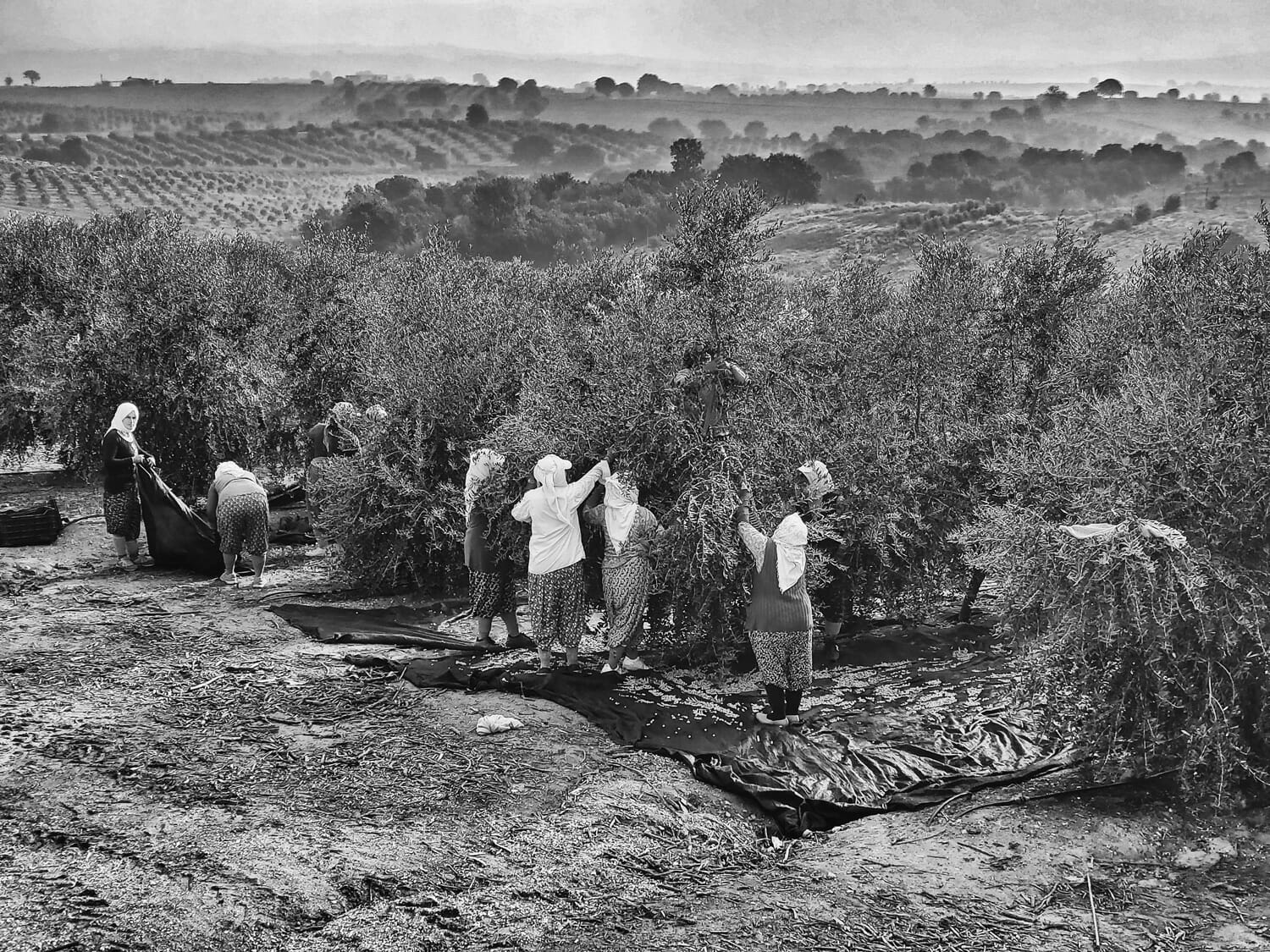Photo by Nicholas Coleman
Coleman Collection #21
PRODUCER
Hermus
CULTIVAR
Trilye
Harvest Date
Sept/Oct 2020
REGION
Koprubasi, Turkey
n addition to being the cultural bridge between Eastern and Western civilizations, Turkey is the world’s fifth largest olive oil producer. 70% of its fruit grows near the Aegean coast. The region favors quantity over quality and often harvests when fruit is deep purple and plump, late in the season. But Ali Zihnioglu of Hermanus, son of an apple farmer, takes a forward-thinking approach to oil production.
In 2007 he selected land based on its most important and immovable elements – air, weather, and sun. He settled on 45 hectares between two lakes and imported cuttings from Cordoba Spain. His team of four agricultural engineers cultivates Arbequina olives and works with neighboring growers to secure the local varieties Ayvalik and Trilye.
Trilye, a medium-large sized fruit, is more commonly known in Turkey as Gemlick. Typically, olive varieties are used either for the table or for oil production, but the Trilye crosses over and is used for both.
The window for Hermus’s Trilye olive hand-harvest is short. Once the fruit turns black the oil is substandard. Prior to the 2 ½ month harvest Ali rents and meticulously cleans a modern local mill. Unlike the traditional cold pressed method, in which olives are crushed with granite wheels and stacked underneath a hydraulic press on fiber woven mats called fiscoli, here instead the olive paste runs through a series of vacuums and centrifuges and is never exposed to oxygen. This modern extraction technique, which produces sharper oil from more ripe fruit, is faster and more sanitary. The oil is then filtered through forty levels before storage in temperature controlled stainless steel tanks.
The bottle of Trilye in your hand contains a perfect specimen – clean on the palate, grassy, bitter and herbaceous with a powerful delayed spicy finish. The cause of this peppery sensation – considered an attribute of high-quality olive oil – is oleocanthal, a natural phenolic compound that has both antioxidant and anti-inflammatory properties. This Trilye is best utilized raw to anoint vegetables, hummus, babaganoush, grilled meats, seafood, soups, and pastas.
Turkey has some of the largest land dedicated to vineyards in the world. In fact, it ranks in the top ten for total acres of vineyards behind the likes of Spain, Italy, and France. Due to its political and religious intersection, wine is neither consumed in large quantities nor by many citizens, and most of the grapes that are cultivated are produced and then distilled and applied to other industries such as medicine, cosmetics, or it is sold to other countries for their respective beverage purposes. That said, there are some interesting grapes to try. The indigenous white grape, Kavaklidere, produces aromatic and clean wines akin to Pinot Grigio and the local Bogazkere is a great option for Cabernet enthusiasts looking for a bold and full-flavored red with ripe dark berry notes.



